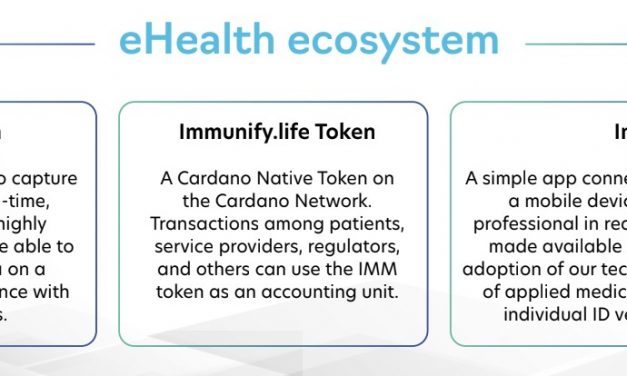5 year study: Can token rewards improve HIV patient outcomes in Africa?
A groundbreaking five-year study into whether crypto token incentives can improve health outcomes for patients with HIV/AIDS will be launched in Kenya by the end of the year.On Nov 1, the blockchain-powered healthcare ecosystem Immunify.Life and the Masinde Muliro University of Science and Technology (MMUST) announced they had secured the approval needed from an ethics committee and the national commission to launch the study.Together they will conduct a five-year study on HIV/AIDS starting before the end of 2021 in the Kakamega County region of Kenya, before extending throughout the rest of the country.The first major project of this collaboration is a groundbreaking study in #HIV/#AIDS to investigate the effectiveness of incentives and paperless tracking systems on HIV treatment adherence and treatment outcomes in low socio-economic settings in Kenya.— Immunify.Life (@ImmunifyLife) December 1, 2021MMUST will use Immunify.Life’s blockchain technology to collect and analyze patient data to help improve the outcomes of HIV treatments. It will evaluate whether patients have better treatment outcomes if they are incentivized with token rewards for health-positive behaviors identified by project sponsors like NGOs and government institutions. Immunify.Life CEO Guy Newing told Cointelegraph: “The program we are testing will offer token incentives to encourage lapsed patients to present at the clinic for their treatment.”Patients and doctors will be rewarded with Immunify.Life’s native ERC-20 IMM token. He added these could be offered for “completing a prescribed course of antibiotics for Tuberculosis,” and to incentivize, “HIV patient returning regularly to the clinic for their check-up and treatment.” Newing said that health care workers will also be rewarded for positive behaviors such as “correctly filling out consultation records, ordering a certain number of tests for Tuberculosis, or completing medical education.”Every patient who uses the platform is issued a nonfungible token (NFT) health ID that captures key medical data, like vaccination records. This data is then transferred to a digital registry to enable remote medical supervision and real-time data access for medical professionals. The study’s sample size is 600 patients. Half will receive the token incentivization, and the other half will act as controls and will not receive token rewards. The patients will be monitored over six months and will receive active treatment and monitoring on a monthly basis.The study will also track the efficacy of using paperless healthcare tracking systems in a low socio-economic area.Source: Immunify.LifeNewing said that, “Critical Medical data treatment data can be captured in real time, time stamped and secured; it can’t be hacked or changed.” The platform will initially use a second-layer solution on Ethereum using Polygon, with long-term plans to bridge to Cardano.Aside from the token rewards provided by sponsors, patients will also financially benefit from the sale of anonymized medical data. Immunify.Life is currently conducting a private round for Strategic and Institutional investors before its initial DEX offering (IDO) which is planned for early 2022. “Patients will be empowered to take control of their data and share in the financial rewards. The system is funded by fees charged to organizations who fund and deliver the healthcare.”In addition to work in HIV in Kenya, Immunify.Life is applying its blockchain technology in two other therapeutic areas, COVID-19 & Opioid addiction. Related: How Blockchain Will Revolutionize HealthcareKenya is home to around 1.5 million people with HIV according to the 2020 UNAIDS report. While 70% of these patients undergo treatment, there are present difficulties around tracking, access, program design, and data collection. Many people diagnosed with HIV are unable to continue with treatment. In some areas, the number of ‘lapsed’ patients can reach up to 40%, according to Immunify.Life. This includes pregnant women, who can pass on the virus to their child during birth.
Čítaj viac



